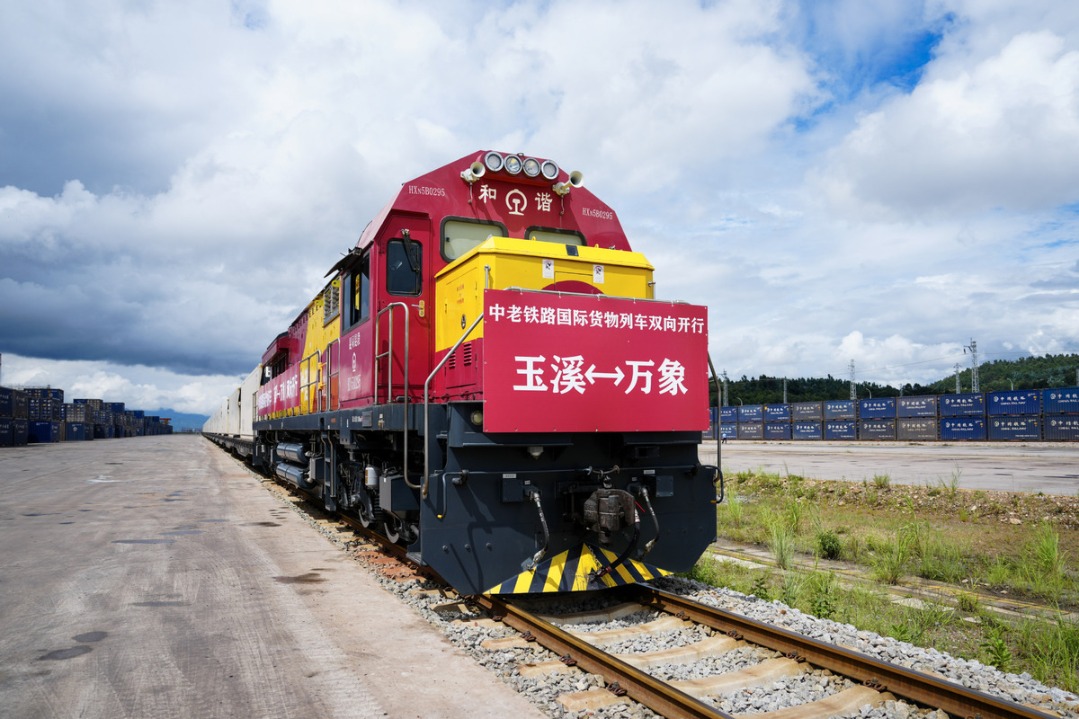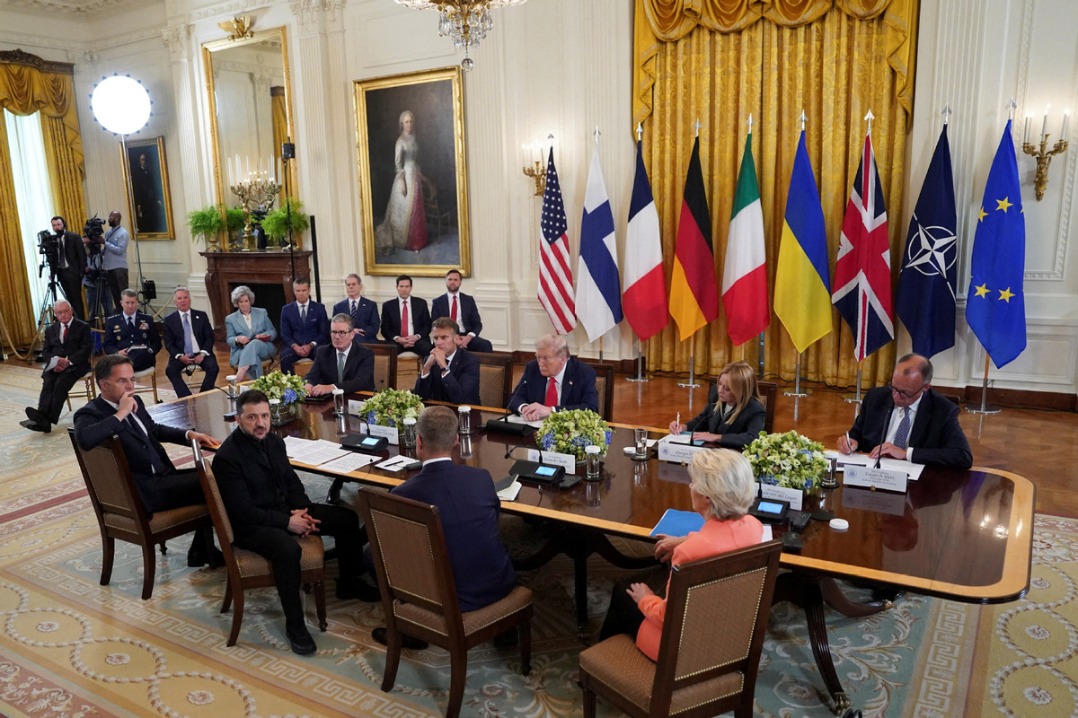Unity of purpose


Countries should actively engage in decisive, coordinated collective action in navigating the increasing global uncertainty
The United States continued a unilateral foreign policy after the start of Donald Trump's second term, designed to shape an international order exclusively in its favor. High-profile events such as the recent US-Russia summit carry geopolitical implications and have therefore drawn worldwide attention. Yet the highly uncertain outcomes of such events only deepen systematic instability in the international order. Major-power relations are now, to some extent, influenced by the Trump administration's diplomatic approach. This has exacerbated the global uncertainty, undermining domestic political and economic stability across nations. In response, other countries should engage more actively in multilateral dialogue and expand international partnership.
The Trump administration has frequently delayed final agreements while sustaining prolonged dialogue. Such a strategy enables the US government to project an image of making continual diplomatic efforts to Trump's domestic supporters while preserving leverage in international negotiations.
Furthermore, the Trump administration has deliberately employed a diplomatic strategy that amplifies instability in the international order. In addressing trade disputes and negotiations relating to hot issues, the Trump administration has pursued a unilateral approach, frequently focusing US demands on short-term gains. This "hub-and-spoke" model of diplomacy advantages the US in bilateral settings, while undermining other countries' ability to form consistent expectations about the global order under Trump's tenure. In critical situations, such as the Ukraine crisis, the preference for bilateral over multilateral talks delays consensus-building and raises the risk of aggressive unilateral moves as parties jockey for more advantageous positions. Fundamentally, the Trump administration lacks the resources, capability and political will to resolve deep-seated structural tensions in volatile regions such as the Middle East and the ongoing Ukraine crisis.
Accordingly, other countries should neither count on the Trump administration to resolve persistent geopolitical crises nor expect the upheaval caused by US policies to be brief.
The US remains undoubtedly a central force in shaping the international political and economic order. Nevertheless, major-power relations have been more closely related to the short-term policy of the Trump administration, against a backdrop of eroding US' strategic trust with other countries. This trend underscores a broader pattern in which the multilateral international order is being steadily undermined by major-power politics and unilateralist maneuvers, compounded by a rise in diplomatic opportunism among certain states.
Strategic distrust among major powers is not a new phenomenon. Even when the US promoted globalization and a rules-based international order, geopolitics remained heavily influenced by Western ideological competition and expansionist policies, which consistently weakened the foundations of multilateral dialogue and cooperation. The ongoing Ukraine crisis, for instance, reflects prolonged tensions fueled by NATO's repeated eastern expansion and the 2014 outbreak of armed conflict in eastern Ukraine. In recent years, the US has increasingly turned to unilateral hegemony, disregarding international norms and marginalizing global institutions.
Another challenge to multilateralism is the politicization of traditionally non-political, or "low politics" issues. Since Trump's first term, the US has increasingly embraced unilateralism and broadly redefined "national security", politicizing areas such as trade, finance and global governance. The Ukraine crisis further intensified this trend, as some countries imposed comprehensive sanctions against Russia. Besides, some member states of the European Union have adopted the US-led narrative of "securitization", thereby damaging economic and technological cooperation between China and the EU.
The weakening of multilateralism has compromised some nations' capacity to manage uncertainty in international relations and, in some states — especially in Europe — fueled self-perpetuating cycles of perceived "national security threats". To mitigate such uncertainties, several countries have turned to the Trump administration's evolving foreign policy, adopting elements of appeasement. These measures, however, are likely to yield limited results. Instead, the international community ought to pursue more proactive steps to rebuild trust in multilateral frameworks.
And given the fact that the current instability in the international system — characterized by heightened major-power competition — is likely to persist, countries should consider adopting the following measures:
First, strategic dialogue should be carried on among major powers to ensure stability in the international order. Such engagement should clearly delineate red lines against exploratory or opportunistic bullying behavior. China, the US and other nations should actively seek common ground through high-level bilateral and multilateral channels.
Second, countries should seize the opportunity presented by the global governance vacuum in the Trump era to strengthen multilateral cooperation. The resurgence of the "America First" approach has exacerbated deficits in global governance, particularly in areas such as climate change. China, Europe and other key parties can initiate inclusive multilateral dialogues — engaging more developing countries. Starting with concrete, less politicized topics, such as achieving the carbon peak target before 2030, can help achieve consensus without political disturbance. It is essential to uphold consensus-based decision-making, resist bloc-based pressure, and respect the interests and voices of all parties involved.
Third, countries should develop coordinated multilateral measures to counter unilateral coercion. Some countries have faced pressure to make unilateral concessions in negotiations with the Trump administration in terms of so-called reciprocal tariffs, with little assurance that agreed terms will endure. China and other affected countries can develop regional and minilateral mechanisms to mitigate risks and use multilateral platforms such as the United Nations to collectively voice opposition to unilateralism and hegemonism.
Faced with mounting global uncertainty, countries should actively pursue self-reliance through decisive, coordinated collective actions.
The author is an assistant research fellow at the Institute of World Economics and Politics at the Chinese Academy of Social Sciences. The author contributed this article to China Watch, a think tank powered by China Daily.
The views do not necessarily reflect those of China Daily.
Contact the editor at editor@chinawatch.cn.


































